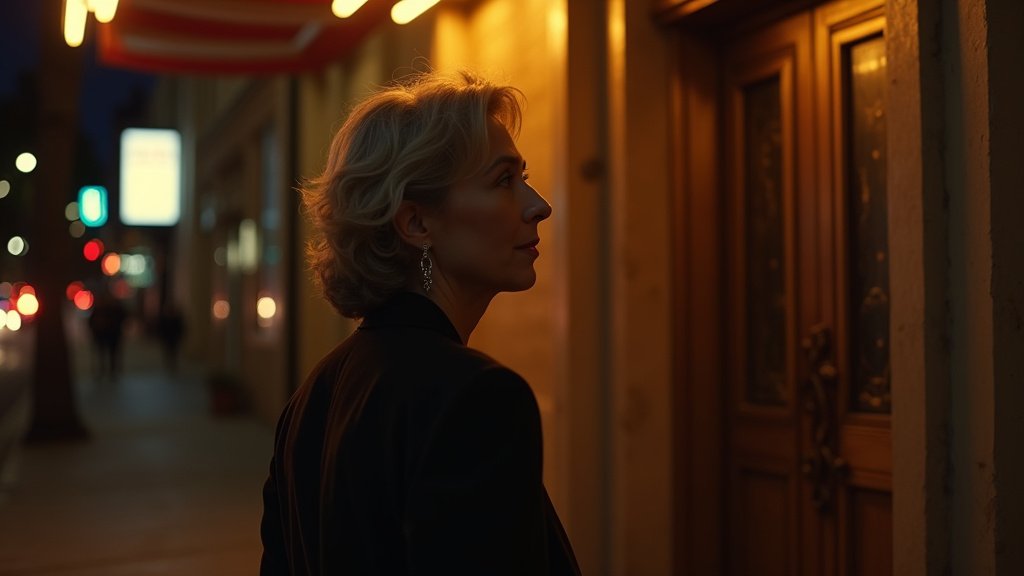In the often predictable landscape of mainstream cinema, a new whisper has grown into a roar, signaling the arrival of Celine Song’s latest cinematic endeavor, “Materialists.” Described provocatively as an “anti-capitalist romcom,” this film is quickly becoming a focal point of discussion, not just for its unique genre blend but for the palpable sense of anticipation it has generated across the industry.
From its initial announcement, “Materialists” has been enveloped in significant Hollywood hype, a characteristic typically reserved for tentpole blockbusters or established franchises. Yet, Song’s film, which centers around a compelling love triangle, presents itself as something inherently different. The movie arrives with the backing of A24, a distributor known for its distinctive and often critically lauded independent productions, further cementing its intriguing position in the current film news cycle.
The Anatomy of an Understated Buzz
The marketing strategy for “Materialists” is a masterclass in controlled allure. Instead of flashy trailers and bombastic promises, the promotion emphasizes a luxurious, understated aesthetic. This approach aligns perfectly with A24’s brand, cultivating an air of sophistication and depth that stands apart from the usual promotional blitz. Central to this curated experience is the film’s soundtrack, which notably features iconic artists like Velvet Underground and Cat Power. This musical curation alone suggests a film steeped in a particular mood and artistic sensibility, aiming to captivate audiences not just through narrative but through atmosphere. The presence of a highly sought-after cast further fuels the early buzz, drawing attention from across the industry and making it a trending topic among cinephiles.
This deliberate, sophisticated marketing contributes significantly to the escalating chatter. It avoids the pitfalls of overexposure while simultaneously building immense curiosity. The collective enthusiasm signals that “Materialists” is not merely another release but a cultural event in the making, promising a cinematic experience that challenges conventions.
Navigating the Early Hype Machine
One common concern within the entertainment industry revolves around the “Hollywood hype machine starting too early.” This phenomenon has, in the past, led to inflated expectations for films that ultimately failed to deliver, creating a sense of fatigue before a movie even hits theaters. Examples like the premature discussions around potential sequels such as “Devil Wears Prada 2” or the long-gestating rumors surrounding “Spider-Man 4” illustrate how early, unchecked hype can sometimes overshadow the actual creative process or even stifle genuine excitement.
However, the excitement surrounding “Materialists” appears to stem from a more organic place. While the buzz is undeniably intense, it feels rooted in the genuine artistic curiosity surrounding Celine Song’s follow-up to her critically acclaimed debut. This isn’t just manufactured noise; it’s a conversation fueled by the promise of a unique story, presented with a distinct vision. It suggests that while early hype can be a double-edged sword, for a film like “Materialists,” it might actually be a testament to its inherent artistic merit and the genuine anticipation for a fresh narrative voice.
The Paradox of the Anti-Capitalist Romcom
The most intriguing label affixed to the film is undoubtedly its designation as an “anti-capitalist romcom.” This immediately sets “Materialists” apart from its genre counterparts, which often subtly, or overtly, celebrate material success and conventional societal achievements. By integrating an “anti-capitalist” stance into the romantic comedy format, the film promises to explore relationships and personal fulfillment outside of traditional economic or status-driven frameworks. The love triangle at its core is therefore likely to transcend typical romantic tropes, delving into deeper questions about values, priorities, and what truly constitutes wealth in human connection.
This bold thematic choice, combined with the film’s understated aesthetic and thoughtful musical selections, positions “Materialists” as a film that seeks to offer more than just lighthearted entertainment. It aims to provoke thought, challenging audiences to reconsider conventional notions of love and success in a world increasingly dominated by commercial imperatives. This is the kind of bold storytelling that generates genuine interest and keeps the film firmly in the headlines.
As “Materialists” approaches its release, the question isn’t just whether it will live up to the considerable hype, but whether its unique blend of artistic vision and unconventional themes will redefine what a successful, impactful film can be in the modern era. Celine Song’s latest appears poised to deliver a powerful, heartfelt narrative that resonates far beyond the conventional trappings of a romantic comedy, proving that some stories are indeed worth all the anticipation.





